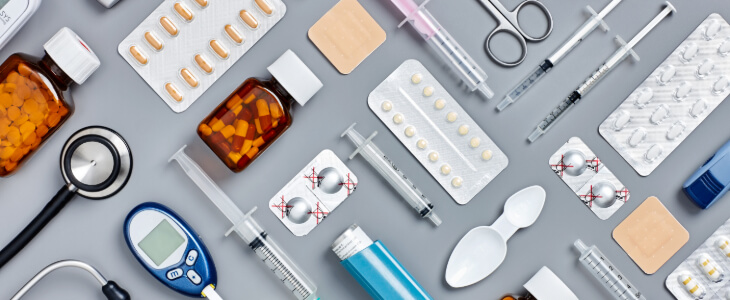Medical devices have done wonders for patients suffering from all kinds of disabilities, illnesses, and conditions. But some products are faulty and can injure the patients they are intended to help. A defective medical device can cause patients to lose time from work and incur significant personal expenses, among other damages. Who can you turn to if you or a loved one have been hurt?
Count on Cooper Schall & Levy. Our personal injury attorneys hold manufacturers and retailers liable for defective medical equipment. When you retain us, we go to work investigating your claims and fighting for the monetary compensation you deserve.
Examples Of Defective Medical Devices
The Food and Drug Administration (FDA) is responsible for regulating the safety of medical devices. Despite several rules and regulations, however, mistakes can be made and faulty equipment can reach the market. While any device might be defective, some have a particular reputation for causing injury. Those include:
- Breast implants
- Pacemakers
- Defibrillators
- Knee implants
- Hip implants
- Artificial joints
- Artificial disks
- IVC filters
- Insulin pumps
- Heart stents
- CT scanners
- Medications
- Vaginal mesh implants
- Intrauterine devices
- Implantable contraceptives
These are only a few of the medical devices that have been found to be defective. If you or a loved one have been injured by one of these pieces of equipment, or perhaps another one, you should reach out to a knowledgeable attorney.
What Makes a Medical Device Defective?
There’s a lot of money to be made on medical devices, which puts tremendous pressure on manufacturers to rush products to the market. While the FDA does what it can to keep patients safe, medical device companies sometimes cut corners and overlook important details. Most defects can be attributed to one or more of the following causes:
Insufficient or improper testing. The FDA requires that medical devices be tested before they can be approved for sale. However, not all testing is thorough enough to identify defects or truly understand the effect of the device on the human body. Medical equipment is complicated and composed of parts and materials that can interact with the body in potentially negative ways. If the testing used to gauge a device’s safety is improper, or there just aren’t enough tests done, the manufacturer may not understand how harmful the product is.
Defective design. Some products are not designed in a way that makes them compatible with the human body. This is especially problematic with devices that are implanted in the body. One example of this is the IVC filter, a product that’s designed to filter blood clots and keep them out of the lungs. These devices have been known to fracture, causing parts to migrate to other parts of the body and cause serious injury.
Defective manufacturing. Even though a product’s design can be safe, a particular piece of equipment may have been improperly manufactured. A mistake on the assembly line, or the use of low-quality materials, can render a device unsafe for human use. While manufacturing defects don’t mean the product itself is inherently dangerous, a bad batch of equipment can injure hundreds or thousands of patients.
Who Is Liable For Defective Medical Devices?
Many different parties are responsible for the medical equipment that patients use. From the designers and manufacturers, to the retailers and doctors, these devices pass through many hands. It’s often the case that more than one party can share responsibility for faulty products. Here are some examples:
Manufacturers and designers. The companies that manufacture the devices, and the ones that design them, could be liable for manufacturing and design defects like those described above. Tracing a product back to its origin will often uncover several mistakes and negligent actions that rendered the device unsafe.
Retailers. Drug stores, pharmacies, and other retailers may be responsible for selling a defective piece of equipment. For instance, these businesses might have been aware (or should reasonably have been aware) that the products they were selling were defective. Or a device may have been improperly handled, unsafely stored, or otherwise could have become defective in the hands of the retailer.
Doctors. Doctors are responsible for instructing patients how to safely use the equipment they recommend or provide to them. A patient should also receive sufficient warnings about any defects that could arise in the device. In some cases, a doctor will be held liable for distributing a product that had a known or reasonably foreseeable problem.
Sales representatives. Medical sales representatives work on behalf of manufacturers to convince doctors to use their products. But they often don’t disclose known safety issues, or may actively conceal them to close a deal. These representatives could be liable for patients becoming sick or injured by medical equipment.
How Can an Attorney Help Me?
One of the first things your lawyer will do is investigate the cause and extent of your defective medical device. Knowing why the product is unsafe will go a long way in establishing liability. Part of this involves demonstrating which party, or parties, caused the problem. The more potential defendants that are identified, the more likely it is that you will recover compensation in accordance with the MCARE statute.
Your lawyer will also look into the amount of damages you’ve suffered in the form of medical bills, lost time from work, pain and suffering, and other related damages. It’s important to get the damages component of your claim right the first time because you won’t get to ask for more money after trial or settlement.
Contact Our Philadelphia Defective Medical Devices Attorney
Patients have a right to expect that their medical devices are free of unreasonable defects. When manufacturers and others neglect their duty to provide safe products, our experienced team gets to work. If you or a loved one were injured by a defective medical device, call us today to explore your legal options.
Cooper Schall & Levy medical malpractice lawyers serve Philadelphia, Pennsylvania as well as neighboring counties such as Montgomery County and Delaware County and cover neighborhoods such as Norristown and Drexel Hill.


